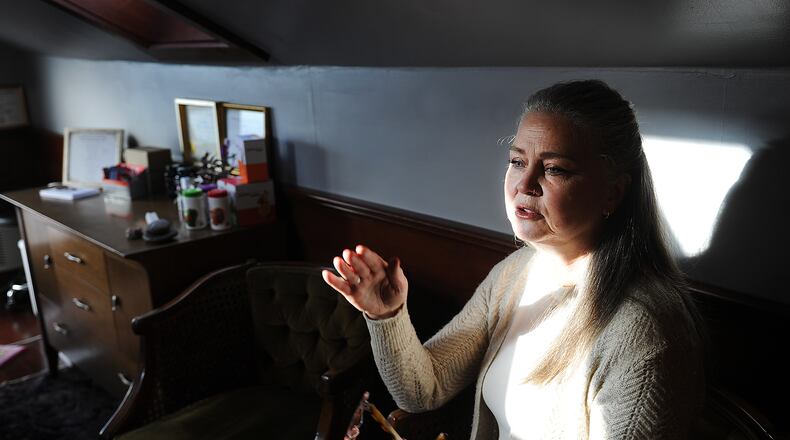When April Kline returned to the Dayton area in 2004 after living in New York, she said no one knew what a doula was.
Now, as the impact doulas has for the health of babies and moms becomes more apparent, it has become more popular.
Kline, who has been a doula for about 22 years, has observed more than1,500 births.
“It has blown up in the last five years,” Kline said.
Medicaid covers more than half of the births in Ohio, said Maureen Corcoran, director of the Ohio Department of Medicaid, in testimony before state legislators on the appropriations bill that approved Medicaid covering this additional support for its pregnant members.
“We provide continuous physical and emotional support and offer help in gathering information,” said Kline about doulas.
Kline, who is also a trained midwife, massage therapist and lactation consultant, is owner and CEO of the Well: A Center for Wellness, located at 529 East Stroop Road in Kettering.
The Well is a collaborative of 15 different practitioners, and its location also has more than 130 doulas who work out of that space.
“Passing the doula certification process and Medicaid reimbursement procedures will allow for more families to use doulas when they get pregnant,” Cole Wojdacz, the statewide field manager for Pro-Choice Ohio, said in testimony before state lawmakers last year.
“Research shows that having a doula during pregnancy increases health outcomes for the birthing person and baby, and can have a real impact on mitigating racial disparities in health care that negatively impact these outcomes. Ohioans deserve that care and attention regardless of their income level,” Wojdacz said.
Ohio lawmakers recently approved legislation that included modifying provisions establishing doula certification by the Board of Nursing and creating a Medicaid program to cover doula services. Medicaid is set to operate a program to cover doula services beginning Oct. 3.
Ohio Medicaid also previously extended its postpartum coverage from 60 days to 12 months to ensure mothers have access to health care during their infants’ first year of life, the department said.
Women who received doula care had 52.9% lower odds of cesarean delivery and 57.5% lower odds of postpartum depression/postpartum anxiety, according to a 2022 study published in the Lancet.
Doula support can mitigate the effects social determinants have on health outcomes for babies and mothers, one study from the Journal of American Board of Family Medicine says, by addressing health literacy and social support needs.
They can help improve communication between low income, racially and ethnically diverse pregnant women and their health care providers, the study says.
This can help address the health disparities Black patients encounter. In 2021, the maternal mortality rate for Black women was 69.9 deaths per 100,000 live births, 2.6 times the rate for white women, according to the National Center for Health Statistics.
Other types of assistance a doula can offer include comfort measures, breathing and relaxation tips, movement and positioning techniques, nourishment guidance, hydrotherapy, and more, Kline said, including helping the significant others feel like they’re part of the process.
About the Author



